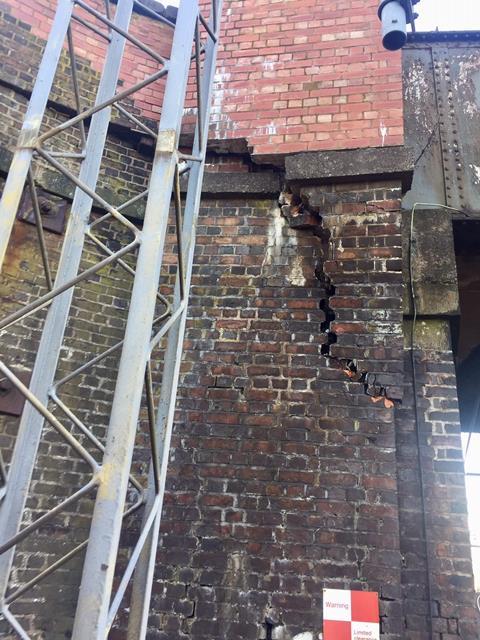
Network Rail has insisted there is no excuse for HGV drivers not to know the height of their vehicles and it will support regulatory action against companies that are involved in bridge strikes.
The rail network operator said its own research found 52% of lorry drivers do not take low bridges into account when route planning and 43% admitted that they did not measure their vehicle.
In the last year alone, it said almost 2,000 instances of vehicles hitting railway bridges were reported, which averages out at more than five a day and caused more than nine hours of delays to rail passengers every day.
Network Rail has now launched a campaign, ‘Wise Up, Size Up’ to educate and provide support to drivers to reduce the number of bridge strikes, which cause risk and disruption to both road users and rail passengers.
Sir Peter Hendy, chair of Network Rail, said: “It’s a very busy time of year for drivers of large goods vehicles, so it’s understandable there may be additional pressure to get to destinations on time, but there is no excuse to not know the height of your vehicle before starting your journey.
Read more
- Companies whose drivers hit bridges could face heavy fines
- North Yorkshire council issues warning to drivers over bridge
- HGV drivers flout bridge weight restriction
“As well as putting lives in danger on both road and rail and causing lengthy delays for passengers and road users, drivers who chance it at bridges are at risk of losing their licenses and leaving their employers with a hefty bill for repairs and train delay costs, along with a strong threat to their own operator’s licence.”
The FTA said operators must ensure they take precautionary steps to prevent incidents from occurring.
Malcolm Bingham, FTA head of road network management policy, said: “While the workload of HGV drivers often increases in the holiday season, it is no excuse not to plan ahead; they should – in partnership with their operators – always pay close attention to vehicle and load heights to ensure that they are safe to pass under through bridge clearances in their route planning.
“After all, striking a bridge can result in the offending business having to pay substantial bills to repair both the bridge and the vehicle, as well as compensation for any resulting train delays, which can be a significant amount; both the driver and operator also run the risk of losing their licences.”
The latest traffic commissioners' report also highlighted the problem, with senior TC Richard Turfitt saying he was “astonished by operators’ lackadaisical approach to the prevention of bridge strikes.”














